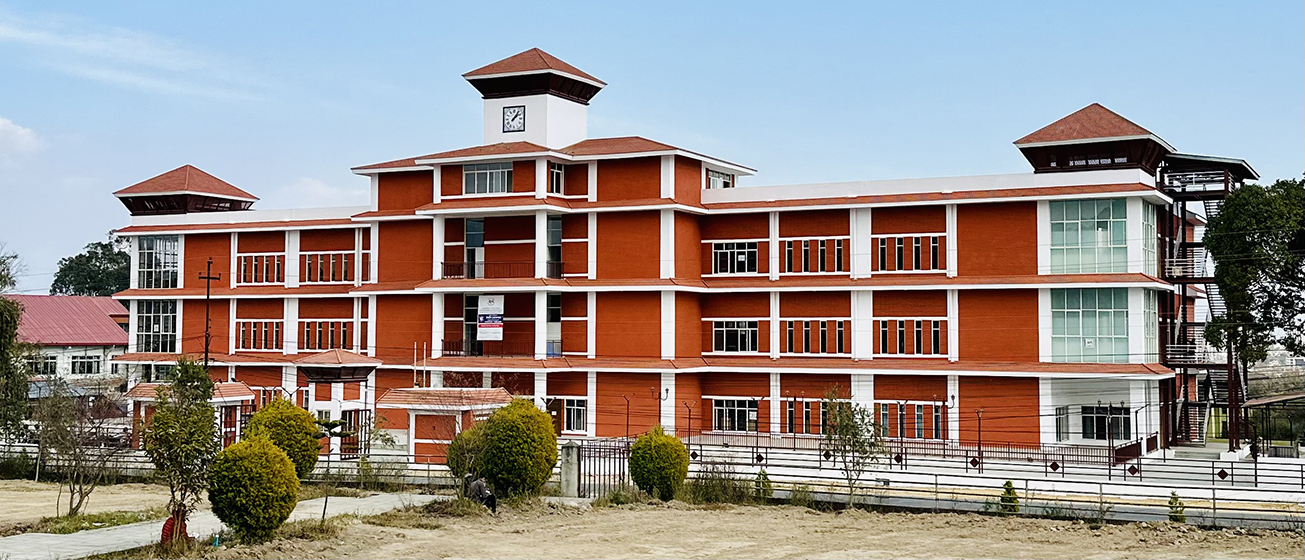Welcome to TUCL Repository
- Access to a vast collection of academic theses and dissertations
- Wide range of scholarly journals and articles
- Search and browse functionalities for easy discovery of resources
- Accessibility to digital resources anytime, anywhere
- Facilitates research and learning endeavors of TUCL community
- Promoting open access to knowledge and research findings
- User-friendly interface, ensuring ease of navigation and accessibility for users of all levels of expertise
- unique persistent identifier (such as DOI or Handle) to facilitate citation, tracking, and long-term preservation, ensuring the integrity and longevity of scholarly contributions

Communities in DSpace
Select a community to browse its collections.
Recent Submissions
From Victim to Victor: Mukhtar Mai's In the Name of Honor a Memoir of Courage and Resistance
(2024) Gautam, Tirtharaj; Shiva Raj Panta
Mukhtar Mai's memoir In the Name of Honor vividly portrays the harsh realities
faced by women in patriarchal societies. This research explores the profound significance of
silence within her narrative, analyzing how power dynamics shape characters' experiences.
Mai's ordeal highlights not just physical but also psychological exploitation, symbolizing
broader challenges faced by women in conservative Muslim societies likes Pakistan. Unlike
many victims, Mai defies societal expectations by seeking justice through legal channels,
despite the daunting requirements for proving rape. Her courage garners global media
attention and support, ultimately catalyzing national and international advocacy efforts. Her
resilience not only challenges patriarchal norms but also empowers other women,
symbolizing a collective struggle against female exploitation. Theoretical insights reveal how
silence and power dynamics shape perceptions of reality in Mai's narrative. This thesis
employs a feminist lens to analyze Mai's resistance and the societal response to her case. The
findings underscore the transformative impact of Mai's activism, demonstrating that
perpetrators of female exploitation can be held accountable under the law. Mai's initiative in
establishing a school for girls emerges as a creative resistance against patriarchal structures,
empowering marginalized women with education and awareness of their rights. Her story
exemplifies a broader movement for gender justice in Pakistan, highlighting the
transformative potential of individual courage in challenging systemic oppression.
Keywords: Patriarchy, Oppression, Sexual Assault, Resistance, Empowerment.
Tajpuriya students' perceptions towards activities in english speaking
(2024) Tajpuriya, Umakanta; Guru Prasad Poudel
The research work entitled, "Tajpuriya Students' Perception towards
Activities in English Speaking aimedto find out the Tajpuriya students’
perception towards activities in English Speaking to explore the challenges faced
by them while learning speaking in the classroom. This study followed the mixed
method research design. The data were collected from both primary and secondary
sources. Questionnaire was the major tool for data collection. Fortysecondary level
students of Morang district were included as the sample of the study. The
respondents were asked both close-ended and open-ended questions to collect the
data. The students and teachers were selected by adopting purposive non-random
samplingprocedure. The collected data were analyzed and interpreted descriptively
using simple statistical tool (i.e. percentage). The findings of the study show that
Majority of teachers conducted speaking tests in classrooms, having received
training for this purpose. Curriculum emphasis on speaking skills was reported to
be lacking compared to other language skills. Teachers utilized diverse methods
like picture description, reading aloud, and oral interviews for testing speaking
proficiency. Engaging in regular conversations, joining English-speaking groups or
clubs, and practicing pronunciation are effective methods. Additionally, listening
to English media, such as podcasts or radio shows, aids in comprehension and
speaking.Working on speaking skills in English garners varying perspectives
among respondents. While 17% strongly agreed and 17% agreed that such efforts
are beneficial, 23% remained neutral, possibly indicating uncertainty or
ambivalence. Conversely, 23% disagreed, and 20% strongly disagreed with the
effectiveness of this endeavor.
This study consists of five chapters. The first chapter deals with
background of the study, statement of the problem, objectives of the study,
research questions, significance of the study, delimitations of the study and
operational definition of the key terms. The second chapter incorporates the review
of theoretical and empirical literature, implications of the reviewed study and
conceptual framework of the study. Likewise, the third chapter includes the
methodology adopted for the study in which, design of the study, population,
sample and sampling strategy of the study, research tools, sources of data, data
collection procedures and data analysis and interpretation procedures of the study
are inserted. The fourth chapter incorporates with the analysis and interpretation of
the collected data both descriptively and using simple statistical tool i.e.
percentage. Similarly, the fifth chapter incorporates the findings based on the
analysis and interpretation of the data, conclusion derived from the findings and
recommendations. This chapter is followed by references and appendices.
Role of family background teachers, and board examination on students' academic performance
(2024) Kunwar, Ramesh Jang; Pramod Bhatta
Not available
